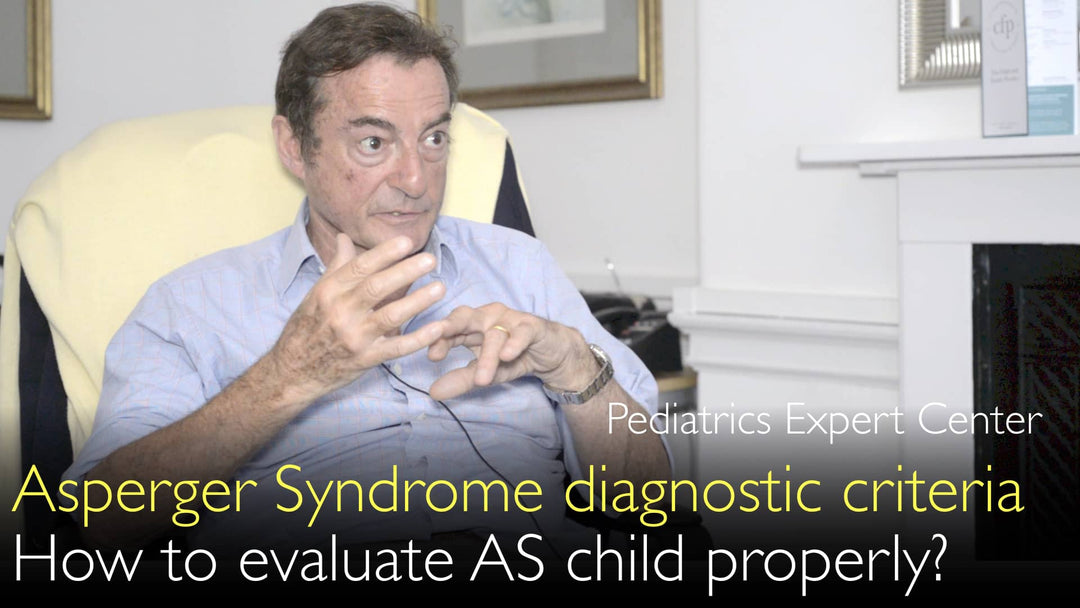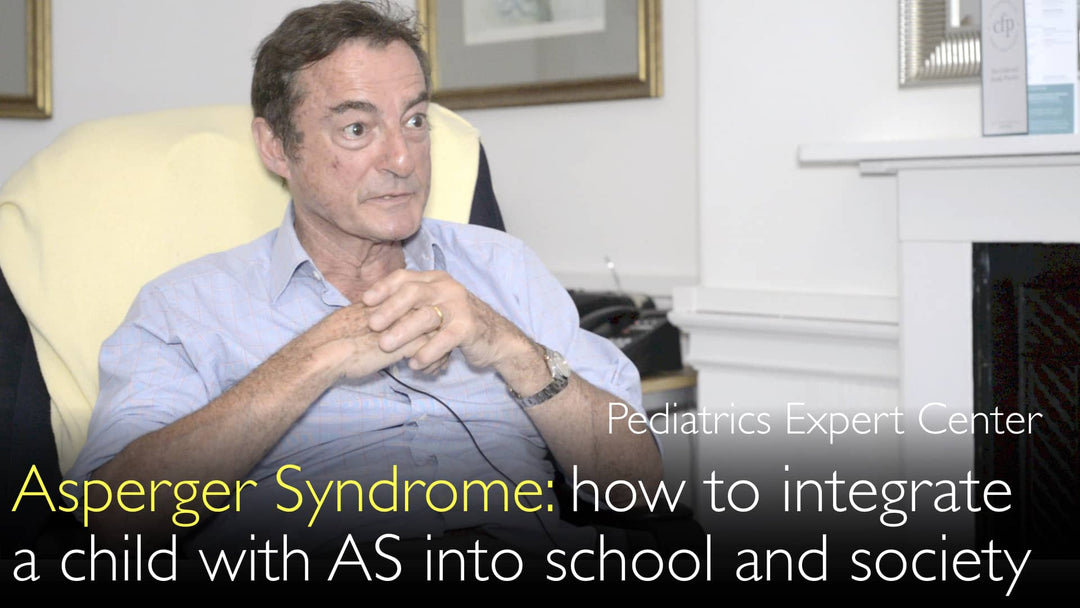Leading expert in pediatric neurodevelopmental disorders, Dr. Ricky Richardson, MD, explains the clinical diagnosis of Asperger syndrome. He details the distinct diagnostic criteria that separate it from classic autism spectrum disorder. Dr. Richardson describes the multidisciplinary evaluation process and the unique cognitive strengths often seen in these children. He also discusses the ongoing debate about its classification and the critical importance of proper educational support.
Asperger Syndrome Diagnosis, Evaluation, and Unique Cognitive Profile
Jump To Section
- Asperger Syndrome as a Distinct Clinical Entity
- Diagnostic Criteria Differences from Autism
- Multidisciplinary Evaluation Process
- Cognitive Strengths and Talents
- Social and Communication Challenges
- Educational Management and Support Strategies
- Full Transcript
Asperger Syndrome as a Distinct Clinical Entity
Dr. Ricky Richardson, MD, maintains a firm belief that Asperger syndrome is a distinct clinical entity separate from autism spectrum disorder (ASD). This perspective contrasts with the American diagnostic classification, which has subsumed Asperger's under the broader umbrella of high-functioning autism. Dr. Richardson's clinical experience reveals a clear phenotypic difference between the two conditions, warranting a separate diagnostic consideration.
Diagnostic Criteria Differences from Autism
The core diagnostic criteria for Asperger syndrome center on preserved language development alongside social challenges. Dr. Ricky Richardson, MD, emphasizes that children with Asperger's often possess excellent speech and language skills from an early age, a key differentiator from classic autism. Their cognitive profile is frequently characterized by a rigid worldview, a prodigious memory, and the development of many specific skills not typically seen in traditional ASD presentations.
Multidisciplinary Evaluation Process
Confirming an Asperger syndrome diagnosis involves the same rigorous, multidisciplinary process used in an Autism Spectrum Disorder clinic. Dr. Ricky Richardson, MD, explains that a team of specialists collaborates to assess the child comprehensively. This approach ensures all aspects of the child's development, behavior, and cognitive functioning are evaluated to reach an accurate diagnosis, which is crucial for tailoring subsequent management and support.
Cognitive Strengths and Talents
A hallmark of Asperger syndrome is the presence of extraordinary cognitive strengths. Dr. Ricky Richardson, MD, notes that these children are often very bright, with some possessing IQs of 150 or more. He describes them as having "super children" qualities, with extraordinarily well-developed skills in areas like mathematics and memory. This unique cognitive profile can sometimes provide an educational advantage over neurotypical peers, making them highly valued in academic settings.
Social and Communication Challenges
Despite their cognitive talents, children with Asperger syndrome face significant social and communication deficits. Dr. Richardson details how these children lack an understanding of normal social boundaries and often invade personal space. Their communication style is characterized by literal thinking, an inability to grasp metaphors, and a tendency to perseverate on a topic long after a listener has lost interest. A profound difficulty with empathy is also a common and challenging feature of the condition.
Educational Management and Support Strategies
Effective management for Asperger syndrome focuses primarily on securing the correct educational setting. Dr. Ricky Richardson, MD, states that schools often welcome these children due to their brightness and unique skill sets. The central goal of treatment is to leverage their cognitive strengths while providing structured support to navigate their social challenges. This tailored educational approach is considered the cornerstone of helping a child with Asperger's syndrome thrive.
Full Transcript
Dr. Anton Titov, MD: How do you diagnose and treat a child with Asperger's syndrome in your practice?
Dr. Ricky Richardson, MD: We believe in Asperger syndrome. We think that Asperger’s syndrome is a distinct clinical entity. It is different from Autism Spectrum Disorder.
Children with Asperger’s syndrome are unlike autism spectrum disorder-type children. They often have excellent speech and language skills. They have a rather rigid method of looking at the world.
For example, they have a prodigious memory often. They have many skills. These are different from children with traditional ASD.
Asperger’s syndrome is distinct, we think so. In America, Asperger syndrome has been removed from the classification. In America it is thought of just as a high-functioning autism.
But we think Asperger’s syndrome is a distinctive, different entity. Only time will tell.
Dr. Anton Titov, MD: Sometimes you encounter children with a potential Asperger's syndrome diagnosis. What are the diagnostic tests and diagnostic criteria that you use to confirm or refute Asperger’s syndrome diagnosis?
Dr. Ricky Richardson, MD: It is exactly the same process as I described. The multidisciplinary process that we have evolved for the Autism Spectrum Disorder clinic.
We think that there is no difference in management except to get the educational setting right.
Dr. Anton Titov, MD: Schools often welcome children with Asperger syndrome because they are often very bright. Children with Asperger’s syndrome have skills that other children without Asperger syndrome don't have.
Dr. Ricky Richardson, MD: You could argue that there can be educational advantage to have Asperger's syndrome over people who are "normal".
Dr. Anton Titov, MD: It is interesting, sounds like "super children"?
Dr. Ricky Richardson, MD: It is a concept we toy with, "super children". But there are certainly many stories about children with Asperger syndrome having extraordinarily well-developed skills.
They have mathematical skills and memory skills, in particular. But they don't seem to have any idea about the normal social boundaries.
These children do not know what is acceptable and what is not acceptable. For example, they invade personal space.
They go on and on talking about a subject long after the other person has become bored. They are rather literal in their thinking.
For example, if it is raining and you say, "it is raining cats and dogs," they will say, "Where are the cats and where are the dogs?" They are very literal.
They don't do empathy very well. It is a very interesting condition. I have met many children with Asperger syndrome.
Dr. Anton Titov, MD: Some children are extraordinarily gifted and usually very bright. They have IQs of 150 or more.






